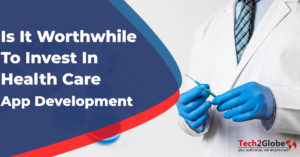Maintaining reliable and timely medical records is crucial in today’s healthcare system. Data entry for the medical industry, which includes medical records, billing data, physician notes, and more, calls for a high level of knowledge and attention to precision. Many hospitals and clinics now use third-party medical data entry services to cut costs and devote more time to patient care. As a result of this tactical shift, patient care, operational efficiency, and expenses may all be improved.
Quality And Accuracy
Since mistakes in medical data, input can have severe ramifications for patient care and treatment plans, accuracy is paramount. When you outsource medical data entry services to a specialist supplier, you can be sure that qualified individuals are doing the work. These professionals’ extensive knowledge of medical jargon and coding guidelines allows for accurate and error-free data entry. Many outsourcing services include quality checks and rigorous validation processes to ensure that the data submitted is accurate and trustworthy.
Focus On Core Strengths
Regarding patient care, hospitals, and other medical facilities put patients’ needs first. Healthcare providers risk losing focus on patient care if they spend too much time on administrative chores like medical data input. Medical personnel may devote more time to providing excellent care for patients when they outsource medical data entry services. It allows the medical personnel to function at peak efficiency, which in turn benefits the patients.
Reduced Expenses
Medical data entry is a costly endeavor to manage in-house. For a healthcare company, the high expenditures of recruitment, instruction, supplies, and continuous operations might strain the company’s budget. When compared to in-house solutions, outsourcing medical data entry services offers significant savings. Companies can save money on staffing and training costs and on IT investments like new computers and networks. Healthcare providers can save money by only paying for the services they use, thanks to the flexible pricing models offered by many outsourcing companies.
Safer Storage Of Information
Maintaining patient privacy is essential to meeting ethical and regulatory standards in the healthcare industry. Reputable medical data entry service providers will take every precaution to ensure the privacy of their clients’ patients while they handle their confidential medical data. Compliance with industry standards such as HIPAA necessitates measures such as encryption, access restrictions, frequent security audits, and so on. The outsourcing company is committed to protecting the confidentiality of patient information and keeping all data secure.
Scalability
The term “scalability” describes the ease with which healthcare facilities may adjust their data management facilities in response to fluctuating needs. Because of this adaptable feature, the company can quickly deal with spikes and valleys in the amount of medical data. When healthcare providers take advantage of the scalability provided by outsourcing medical data entry services, they can easily manage spikes in patient information and administrative duties without making significant in-house modifications. Because of this flexibility, operations are boosted, bottlenecks are avoided, and vital medical data is always readily available and controllable.
Rapid Response Time
Faster turnaround is a significant perk of outsourcing medical data entry services. Timeliness is essential in the healthcare industry because of the importance of processes, including patient registration, billing purposes, and insurance claims. Healthcare firms can save time on data input and processing by contracting with outside companies who specialize in this area.
This flexibility not only speeds up patient care but also streamlines administrative processes, reduces wait times, and makes vital medical data readily available when needed. Outsourcing helps improve operational efficiency and patient response time by decreasing wait times for completed tasks.
Availability Of Cutting-Edge Tech
The ability to gain access to cutting-edge technology is facilitated by medical data entry services that may be outsourced. Data input is made more accessible and more productive using the newest software and technologies, which service providers excel in keeping up with. When healthcare facilities outsource, they receive access to innovative technologies that improve data quality and flexibility.
This innovation improves the precision of medical data and gives organizations the tools they need to adapt to the rapidly changing healthcare information landscape. Access to cutting-edge technology ultimately helps healthcare practitioners streamline data entry and boost efficiency.
Lessening Of The Logistical Load
Healthcare professionals’ administrative strain is significantly reduced when medical data entry services are outsourced. Healthcare organizations may relieve their personnel of tedious data entry labor by contracting it out to experts in the field.
It frees up doctors’ time to focus on treating patients, developing long-term strategies, and making important calls. Outsourcing improves productivity because it streamlines administrative operations. Internal resources may be directed more effectively toward improving patient outcomes and the business’s overall health.
Enhancements To Analytical Data
The field of better data analytics inside healthcare facilities is substantially boosted by outsourcing medical data entry services. Organizations in the healthcare industry may benefit significantly from the assistance of specialist outsourcing partners by receiving accurate and well-organized data.
These findings provide the groundwork for healthcare decision-making based on evidence, distributing resources, and the execution of specific initiatives. Improved data analytics gives healthcare providers a leg up in the race to improve patient outcomes, streamline operations, and adapt to a dynamic industry.
Increased Compliance
In addition to improving efficiency, outsourcing medical data entry services is essential to bolster healthcare compliance. Complex norms and standards govern the sector, and reputable outsourcing vendors are familiar with them.
By delegating data input to these specialists, healthcare providers may reduce risk exposure, protect patient privacy, and stay in line with regulations without allocating internal resources. This coordinated effort promotes a regulatory compliance culture, protecting patient confidence and the institution’s standing while enhancing productivity.
Conclusion
There are several positive outcomes for healthcare organizations that outsource medical data entry services. Medical personnel can improve patient care while maintaining operational excellence because of outsourcing’s many benefits, including increased accuracy and data security, reduced costs, and a sharper focus on crucial healthcare operations. Many medical firms are outsourcing data entry services to better adapt to the ever-changing demands of the healthcare industry.










